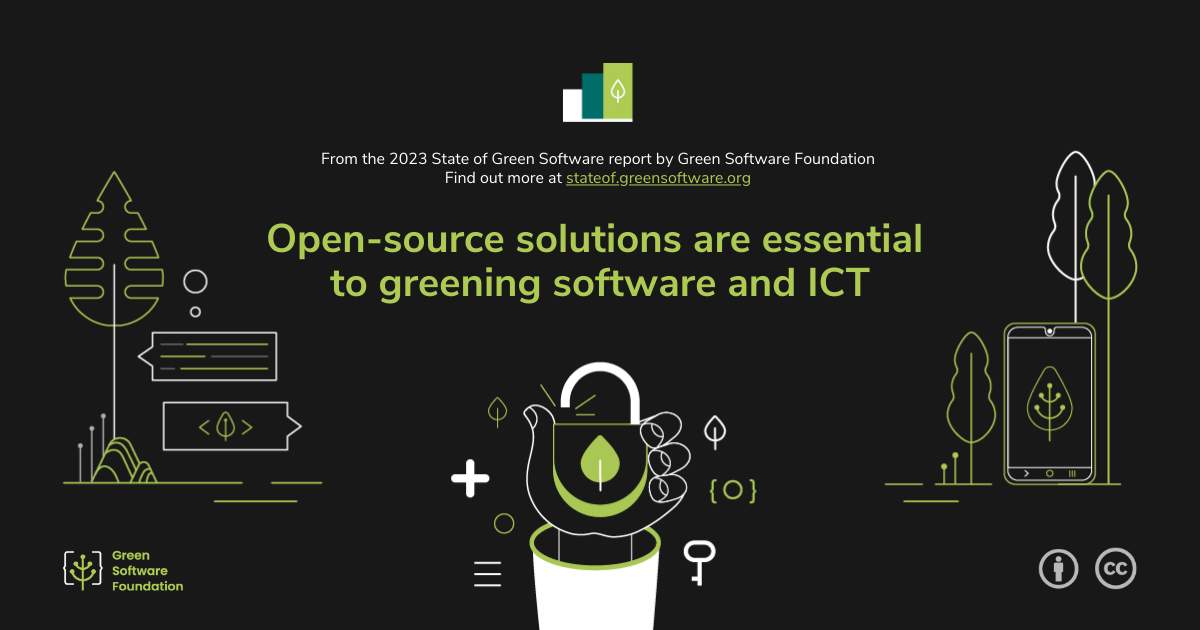Open-source solutions are essential to greening software and ICT
Green Software Foundation is committed to open-source approaches to decarbonization. For example, Green Software Patterns is an online open-source database of software patterns that will enable software practitioners to reduce their emissions and the open-source Carbon Aware SDK helps you build the carbon aware software solutions with the intelligence to use the greenest energy sources. Such resources are needed to create an ecosystem of people with the knowledge to build greener applications.
Cloud Carbon Footprint is one example of open-source tooling that is impacting the speed and quality of decarbonization approaches. It helps software practitioners measure, monitor, and reduce their cloud carbon emissions, giving organizations the data they need to make environmentally-sound decisions at every level of the business. Other examples include Scaphandre, an energy consumption metrology agent, and CodeCarbon, a Python package for tracking emissions.
As the late Executive Director of LF Energy, Shuli Goodman wrote in a December 2022 article, one company alone cannot build the technologies needed to mitigate climate change, and traditional black box approaches to proprietary software will inhibit progress and innovation at this crucial time. LF Energy’s open-source OpenEEmeter project in California helped the state calculate energy efficiency impacts. Other state governments can now apply the same codebase and methodology.
Some SOGS survey respondents stressed the importance of open-source software. One told us, “We also should focus on using open-source software as it helps in saving lots of energy in building software by each company.” Other reports, like the one from the Green Web Foundation, also emphasize the need for more attention to open-source and community-based solutions to climate change.
Open-source tools and open-access research are important components for making green software principles more equitable globally, and to accelerate the application of tools and green software patterns that can reduce the carbon intensity and impact of software. Carbon Brief’s analysis of the 2021 IPCC report on the physical science basis for climate change shows that 99.95% of the quoted research is in English, and a vast majority is behind a paywall. Reducing the emissions connected to the ICT industry takes a coordinated, global effort. With open-source software, source code is available for any software engineer to view and modify. This means that a global community of developers can collaborate to identify and fix potential problems and improve green software patterns quickly. Consider Argonne National Laboratory’s Earth Model Column Collaboratory, an open-source research platform that creates more accurate climate models and weather predictions. Open-source research and tooling can help ensure that decarbonization is an equitable, global effort.
